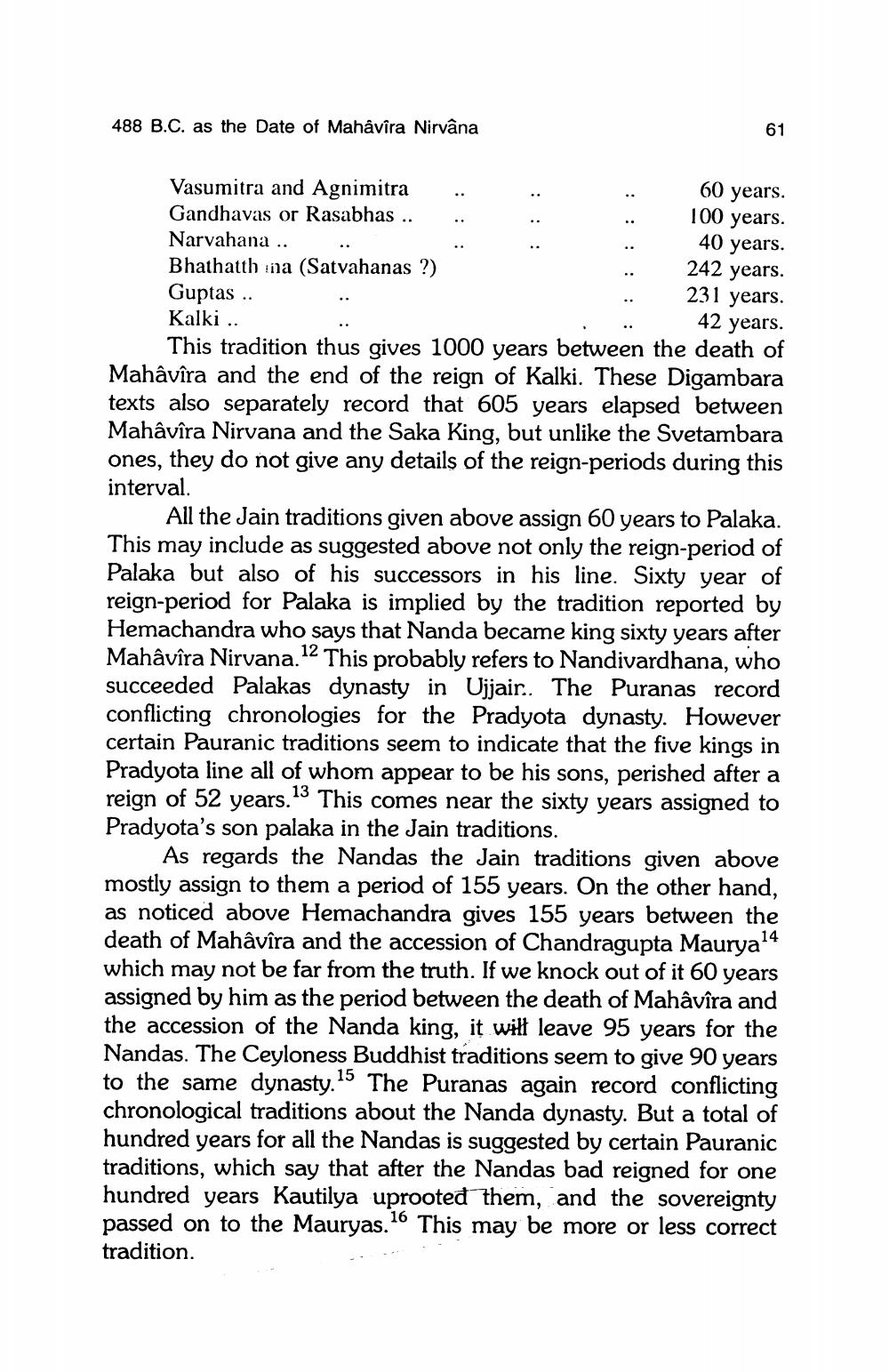________________
488 B.C. as the Date of Mahâvîra Nirvana
Vasumitra and Agnimitra
Gandhavas or Rasabhas ..
Narvahana ..
Bhathatth na (Satvahanas ?)
Guptas ..
Kalki ..
..
61
60 years. 100 years. 40 years.
242 years. 231 years.
42 years.
This tradition thus gives 1000 years between the death of Mahâvîra and the end of the reign of Kalki. These Digambara texts also separately record that 605 years elapsed between Mahâvîra Nirvana and the Saka King, but unlike the Svetambara ones, they do not give any details of the reign-periods during this interval.
All the Jain traditions given above assign 60 years to Palaka. This may include as suggested above not only the reign-period of Palaka but also of his successors in his line. Sixty year of reign-period for Palaka is implied by the tradition reported by Hemachandra who says that Nanda became king sixty years after Mahâvîra Nirvana. 12 This probably refers to Nandivardhana, who succeeded Palakas dynasty in Ujjair.. The Puranas record conflicting chronologies for the Pradyota dynasty. However certain Pauranic traditions seem to indicate that the five kings in Pradyota line all of whom appear to be his sons, perished after a reign of 52 years. This comes near the sixty years assigned to Pradyota's son palaka in the Jain traditions.
13
14
As regards the Nandas the Jain traditions given above mostly assign to them a period of 155 years. On the other hand, as noticed above Hemachandra gives 155 years between the death of Mahâvîra and the accession of Chandragupta Maurya14 which may not be far from the truth. If we knock out of it 60 years assigned by him as the period between the death of Mahâvîra and the accession of the Nanda king, it will leave 95 years for the Nandas. The Ceyloness Buddhist traditions seem to give 90 years to the same dynasty. 15 The Puranas again record conflicting chronological traditions about the Nanda dynasty. But a total of hundred years for all the Nandas is suggested by certain Pauranic traditions, which say that after the Nandas bad reigned for one hundred years Kautilya uprooted them, and the sovereignty passed on to the Mauryas.16 This may be more or less correct tradition.




